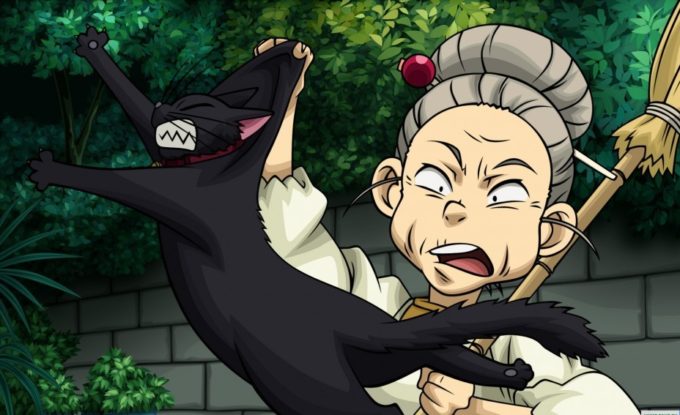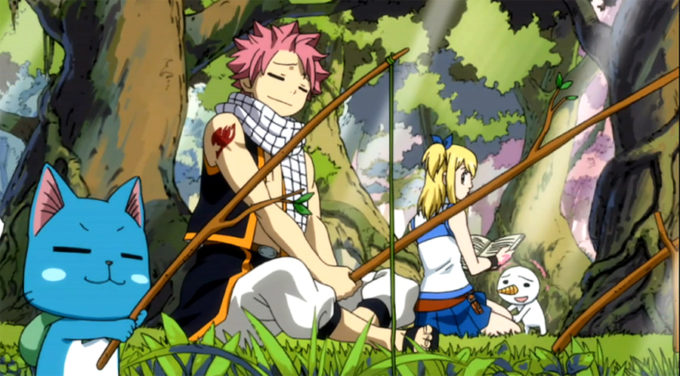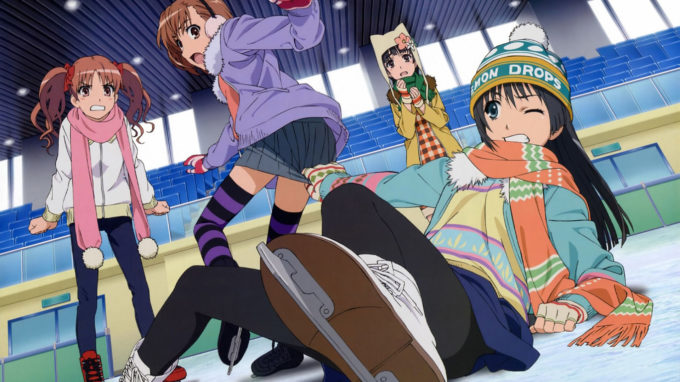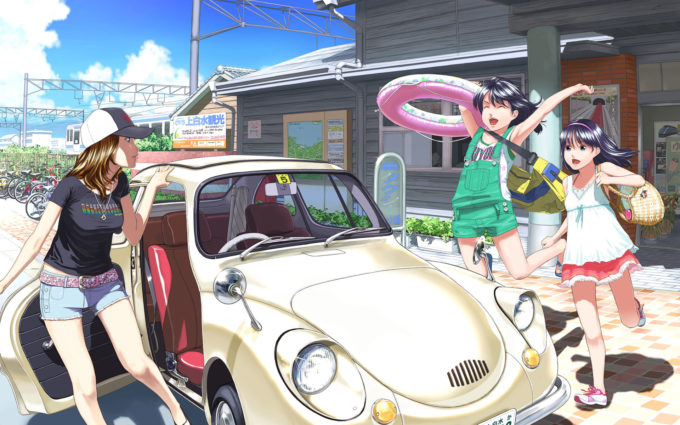Exercise 3. Перепишите предложения в третьем лице единственного числа, используя слова в скобках.

- We always help our grandparents. (Mike)
- They like to swim in the swimming-pool. (Andy)
- I make the best pizza in our town. (Vicky)
- We meet our friends every weekend. (Larry)
- I know everything about cats. (Dolly)
- We write wonderful poems. (Nelly)
- You understand French well. (Garry)
- I teach my little brother to ride a bike. (Sam)
- Children often play with the ball in the yard. (Pam)
- Birds sing merrily in the tree. (A bird)
- You often fly to Prague. (My cousin)
- They always watch TV in the evening. (His mother)
- We sometimes see him in the library. (Alice)
- I usually wash the car on Saturday. (My father)
- You never tell lies. (Bill)
Answers: 1. Mike always helps his grandparents. 2. Andy likes to swim in the swimming-pool. 3. Vicky makes the best pizza in our town. 4. Larry meets our friends every weekend. 5. Dolly knows everything about cats. 6. Nelly writes wonderful poems. 7. Garry understands French well. 8. Sam teaches my little brother to ride a bike. 9. Pam often plays with the ball in the yard. 10. A bird sings merrily in the tree. 11. My cousin often flies to Prague. 12. His mother always watches TV in the evening. 13. Alice sometimes sees him in the library. 14. My father usually washes the car on Saturday. 15. Bill never tells lies.
Exercise 11. Поставьте глаголы в скобках в правильную форму.

- Where … your brother usually … (to go) after classes? — He usually … (to go) to the swimming-pool. He … (to have) trainings four times a week.
- Why … your sister always … (to get up) so early in the morning? — Because she … (to help) my mother to cook breakfast for the whole family.— … you … (not to cook) breakfast for yourself? — No, I …. I usually … (to walk) the dog before going to school.
- What … you usually … (to do) on Saturdays? — Well, in the morning I … (to go) shopping with my mother and then I … (to take) my younger sister to the Art Studio. She … (to paint) very well and … (to dream) of becoming a designer.— … you … (to meet) your friends on Saturdays? — Of course, I … . We often … (to go) to the cinema or to the disco on Saturday evenings.
- Why … Fred … (to need) to buy flowers? — It… (to be) his sister’s birthday today. She … (to love) flowers and Fred … (to believe) it … (to be) the best present for her.
- What time … this programme … (to start)? — It always … (to start) at eight in the evening.— … you always … (to watch) it? — No, I… (not always to watch) it because sometimes I have to meet my younger brother at the tram stop. He often … (to return) from the football training at this time.
Answers:1. Where does your brother usually go after classes? — He usually goes to the swimming-pool. He has trainings four times a week. 2. Why does your sister always get up so early in the morning? — Because she helps my mother to cook breakfast for the whole family.— Don’t you cook breakfast for yourself? — No, I don’t. I usually walk the dog before going to school. 3. What do you usually do on Saturdays? — Well, in the morning I go shopping with my mother and then I take my younger sister to the Art Studio. She paints very well and dreams of becoming a designer.— Do you meet your friends on Saturdays? — Of course, I do. We often go to the cinema or to the disco on Saturday evenings. 4. Why does Fred need to buy flowers? — It is his sister’s birthday today. She loves flowers and Fred believes it is the best present for her. 5. What time does this programme start? — It always starts at eight in the evening.— Do you always watch it? — No, I don’t always watch it because sometimes I have to meet my younger brother at the tram stop. He often returns from the football training at this time.
WELL DONE!

Литература:
- Павличенко О.М. Английский язык. Грамматический практикум. II уровень. — 2-е изд., испр. и доп. — X.: Ранок, 2012. — 304 с.
- Голицынский Ю.Б. Грамматика: Сборник упражнений. — 5-е изд., — СПб: КАРО, 2005. — 544 с. — (Английский язык для школьников).
Reading Tests 3 класс Jim’s Forest Friend One Sunday morning my friend Jim goes to the forest?
Reading Tests 3 класс Jim’s Forest Friend One Sunday morning my friend Jim goes to the forest.
He meets his friend in the forest.
His friend’s name is Mike.
Mike is a bear.
He is big, brown and funny.
Mike has a sweet tooth.
He likes sweets, jam and honey.
The bees in the forest are his friends.
But Mike doesn’t like cabbage and carrots.
Jim likes ice cream and red sweet carrots.
He has a sweet tooth too.
Mike is smart.
He visits Green School.
He can read forest books.
But he cannot play chess.
Jim would like to teach Mike to play chess.
He says : «Please, Mike, play with me».
Jim likes to help his friend.
His friend is strong but kind.
Jim and Mike are friends.
Задание А Read the text.
What is this story about?
Choose the right answer.
Forest School The boy’s friend Bees The forest Задание В Complete the sentences.
Choose the correct word or word combination.
1. Jim has got… 2.
. Jim meets Mike… 3.
Mike can… 4.
Jim would like to… a.
A forest friend a.
In the park a.
Play a.
Read books together b.
The bees b.
In Green School b.
Run and jump b.
Play chess together c.
Ice cream c.
In the forest c.
Sing c.
Be strong d.
Sweet carrots d.
At home d.
Read d.
. play football together Задание С Answer the question.
Exercise 4. Дополните предложения подходящим словам из скобок.

- … likes to watch shows on TV. (I/you/she)
- … gather berries in the wood in summer. (he/we/it)
- … water the flowers three times a week. (I/she/he)
- … usually drinks tea in the morning. (I/he/they)
- … prefers to stay at home in the evening. (I/my sister/mу cousins)
- … works properly, (you/the workers/my watch)
- … never wears a scarf in winter. (Rita/we/my friends)
- … mend the roof of the house every summer, (his uncle/you/ my grandfather)
- … spend winter holidays in the mountains. (her cousins/she/Fred)
- … sometimes goes to the theatre. (my Granny/my parents/ту sisters)
Answers: 1. She; 2. We; 3. I; 4. He; 5. My sister; 6. My watch; 7. Rita; 8. You; 9. Her cousins; 10. My Granny.
Exercise 10. Составьте предложения, расставив слова в верном порядке.

- help/sister/with/your/washing-up/Does/you?
- on/early/He/Sunday/up/hates/get/to.
- much/the/don’t/seaside/at/We/time/spend.
- changes/spring/The/often/in/weather.
- you/relatives/visit/Do/often/your?
- phone/doesn’t/my/He/number/know.
- any/in/vegetables/grandparents/summer/her/Do/grow?
- often/trips/towns/goes/cousin/to/business/My/on/other.
- you/before/hands/always/wash/Do/meals/your?
- sugar/drink/My/without/tea/doesn’t/mother.
Answers: 1) Does your sister help you with washing-up? 2) He hates to get up early on Sunday. 3) We don’t spend much time at the seaside. 4) The weather often changes in spring. 5) Do you often visit your relatives? 6) He doesn’t know my phone number. 7) Do her grandparents grow any vegetables in summer? ![]() My cousin often goes on business trips to other towns. 9) Do you always wash your hands before meals?
My cousin often goes on business trips to other towns. 9) Do you always wash your hands before meals?
10) My mother doesn’t drink tea without sugar.
Exercise 7. Сделайте предложения отрицательными.

- Martin often goes fishing in summer.
- You always buy fresh newspapers.
- His mother bakes tasty pies.
- This fruit salad tastes delicious.
- Pineapples grow in trees.
- My dog eats tomatoes and pears.
- People know a lot about the life on other planets.
- I always travel with my grandparents.
- They plant flowers and trees every spring.
- Girls always like to do the washing-up.
Answers: 1. Martin doesn’t often go fishing in summer. 2. You don’t always buy fresh newspapers. 3. His mother doesn’t bake tasty pies. 4.This fruit salad doesn’t taste delicious. 5.Pineapples don’t grow in trees. 6.My dog doesn’t eat tomatoes and pears. 7.People don’t know a lot about the life on other planets. 8. I don’t always travel with my grandparents. 9.They don’t plant flowers and trees every spring. 10. Girls don’t always like to do the washing-up.
Do / Does – упражнения
Упражнение 1. Как мы помним, DO / DOES в английском языке помогает нам построить вопрос в Present Simple. В этом упражнении нужно вставить DO / DOES в вопросительное предложение.
- _____ you go to school on Sundays?
- _____ Molly study well?
- _____ you clean your room every day?
- _____ your Mum feed your dog in the morning?
- _____ Ben live in Brighton?
- _____ Oleg go in for football?
- _____ Tom drive his car well?
- _____ she get up early every day?
- _____ you like rainy weather?
- _____ Tim like to go to the theatre?
Упражнение 2. Мы также помним, что при помощи вспомогательного глагола do / does и частички not мы строим отрицательное предложение в Present Simple. В следующем упражнении нужно вставить don’t / doesn’t, тем самым образовав отрицание.
- I _____ like to play basketball.
- Mary_____ like to swim in the pool.
- Liz _____ play computer games.
- They _____ go to the disco on weekdays.
- Molly _____ cook dinner, she cooks breakfast.
- My friends _____ train at the stadium.
- Ben _____ play chess, he plays football.
- You _____ speak English well.
- Jimmy _____ lose his things, he is very neat.
- Mum and Dad _______ like this movie.
Упражнение 3. Возвращаемся к вопросительным предложениям. На этот раз нужно вставить DO / DOES в вопросительное предложение с вопросительным словом.
- What _____ you do every day?
- When ____ they come home on Mondays?
- Whom ____ you usually help?
- What time _____ she usually come home?
- How long _____ they train on Mondays?
- What book _____ he read every day?
- Where _____ you often go in the evening?
- What subjects _____ he like most of all?
- Why ____ you like Maths?
- What ____ you think about Tom?
Упражнение 4. Исправьте ошибки в предложениях.
- I doesn’t play computer games.
- Do he play football today?
- The boys doesn’t swim well.
- Bill don’t buy books.
- I doesn’t often wear jeans.
- Tom don’t know grammar rules.
Упражнение 5. Теперь, когда мы повторили использование DO / DOES? Перейдем к более сложным упражнениям. В данном упражнении нужно самостоятельно построить вопрос при помощи DO / DOES.
- You work hard. What about Anna?
- Tom speaks French. What about his brother?
- Charles plays football. What about Richard?
- I do yoga every morning. What about you?
- I love running. What about you?
Упражнение 6. Теперь перейдем к составлению отрицательных предложений при помощи DO / DOES. В данном упражнении нужно сделать предложения отрицательными.
- They know my telephone number.
- She likes to eat salad.
- We visit our grandparents on Sunday.
- I play the guitar.
- Mary studies every night.
Упражнение 7. Вставьте DO / DOES / DON’T / DOESN’T. Пометка (-) в конце предложения означает, что предложение отрицательное.
- They ________ like to write tests. (-)
- Andrew ________ like to play volley-ball. (-)
- ________ Helen take a shower in the morning?
- ________ boys like to play computer games?
- When ________ Pam come home from school?
- I ________ tidy my room every day. (-)
- How much time ________ you spend at the stadium?
- We ________ want to go to the museum. (-)
- ________ they speak Spanish?
- What ________ Mona do in her free time?
Ответы к упражнениям.
Exercise 1.
1 do, 2 does, 3 do, 4 does, 5 does, 6 does, 7 does, 8 does, 9 do, 10 does
Exercise 2.
1 don’t, 2 doesn’t, 3 doesn’t, 4 don’t, 5 doesn’t, 6 don’t, 7 doesn’t, 8 don’t, 9 doesn’t, 10 don’t
Exercise 3.
1 do, 2 do, 3 do, 4 does, 5 do, 6 does, 7 do, 8 does, 9 do, 10 do
Exercise 4.
Вариант ответов. Во многих предложениях можно также исправить ошибку путем смены действующего лица.
- I don’t play computer games.
- Does he play football today?
- The boys don’t swim well.
- Bill doesn’t buy books.
- I don’t often wear jeans.
- Tom doesn’t know grammar rules.
Exercise 5.
- Does she work hard?
- Does his brother speak French?
- Does he play football?
- Do you do yoga every morning?
- Do you love running?
Exercise 6.
- They don’t know my telephone number.
- She doesn’t like to eat salad.
- We don’t visit our grandparents on Sunday.
- I don’t play the guitar.
- Mary doesn’t study every night.
Exercise 7.
1 don’t, 2 doesn’t, 3 does, 4 do, 5 does, 6 don’t, 7 do, 8 don’t, 9 do, 10 does
Возможно, вам также покажутся интересными следующие материалы:
- 13 упражнений на отработку Present Simple.
- To do / to make – упражнения.
- Упражнения для 2 класса по английскому языку с ответами
- Упражнения для 3 класса по английскому языку
Exercise 9. Сделайте предложения вопросительными.

- Liz and her sister often go skating to the skating-rink.
- Our teacher always prepares us for tests.
- Her dog likes to sleep on the sofa.
- We usually make photos for the school newspaper.
- Den often goes on a ride with his friends.
- Ted and Victor prefer to travel by car.
- It often rains in spring.
- His sister runs a small cafe.
- The Harrods usually visit their relatives in the country.
- All children like sweets and ice cream.
Answers: 1. Do Liz and her sister often go skating to the skating-rink? 2.Does our teacher always prepare us for tests? 3.Does her dog like to sleep on the sofa? 4.Do we usually make photos for the school newspaper? 5.Does Den often go on a ride with his friends? 6.Do Ted and Victor prefer to travel by car? 7. Does it often rain in spring? 8.Does his sister run a small cafe? 9.Do the Harrods usually visit their relatives in the country? 10. Do all children like sweets and ice cream?
Exercise 1. Вставьте глагол to be в Present Simple.
- What … your name? — My name … Shirley Frank.
- What … your address? — My address … 175 Grand Central Parkway.
- What… your phone number? — My phone number … 718-1930.
- Where … you from? — I … from New York.
- I … a pupil.
- My father … not a teacher, he … a scientist.
- … your aunt a doctor? — Yes, she ….
- … they at home? — No, they … not at home, they … at work.
- My brother … a worker. He … at work.
- … you an engineer? — Yes, I … .
- … your sister a typist? — No, she … not a typist, she … a student.
- … your brother at school? — Yes, he … .
- … your sister at school? — No, she … not at school.
- My sister … at home.
- … this your watch? — Yes, it … .
- She … an actress.
- This … my bag.
- My uncle … an office worker.
- He … at work.
- Helen … a painter. She has some fine pictures. They … on the walls. She has much paper. It … on the shelf. The shelf … brown. It … on the wall. Helen has a brother. He … a student. He has a family. His family … not in St. Petersburg, it … in Moscow.
Answers: 1. is, is. 2. is, is. 3. is, is. 4. are, am. 5. am. 6. is, is. 7. is, is. 8. are, are, are. 9. is, is. 10. are, am. 11. is, is, is. 12. is, is. 13. is, is. 14. is. 15. is, is. 16. is. 17. is. 18. is. 19. is. 20. is, are, is, is, is, is, is, is.
ГДЗ по английскому языку. 3 класс. Учебник. Быкова Н. И., Дули Д., Поспелова М. Д., Эванс В.
Ответы к учебнику. Английский язык. 3 класс. Быкова Н. И., Дули Д., Поспелова М. Д., Эванс В.
Welcome back! (Урок а) c. 4 — 5Welcome back! (Урок b) c. 6 — 81 а. School again! с. 10 — 111 b. School again! с. 12 — 132 а. School subjects! c. 14 — 152 b. School subjects! c. 16 — 17The toy soldier. c. 18 — 19Activities Module 1. The Toy Soldier. c. 20Schools in the UK! с. 21Now I know. c. 22 — 23Arthur + Rascal. с. 24
3 a. A new member! c. 26 — 273 b. A new member! c. 28 — 294 a. A happy familly! с. 30 — 314 b. A happy familly! с. 32 — 33The toy soldier. c. 34 — 35Activities Module 2. The Toy Soldier. c. 36Families near and far! с. 37Now I know. c. 38 — 39Arthur + Rascal. с. 40
5 a. He loves jelly! с. 42 — 435 b. He loves jelly! с. 44 — 456 a. In my lunch box! с. 46 — 476 b. In my lunch box! с. 48 — 49The toy soldier. c. 50 — 51Activities Module 3. The Toy Soldier. c. 52Spotlight on the UK. A bite to eat! c. 53Now I know. c. 54 — 55Arthur + Rascal. с. 56
7 a. Toys for little Betsy! с. 58 — 597 b. Toys for little Betsy! с. 60 — 618 a. In my room! с. 62 — 638 b. In my room! с. 64 — 65The toy soldier. c. 66 — 67Activities Module 4. The Toy Soldier. c. 68Spotlight on the UK. Tesso Superstore c. 69Now I know. c. 70 — 71Arthur + Rascal. с. 72
9 a. Cows are funny! с. 74 — 759 b. Cows are funny! с. 76 — 7710 a. Clever animals! с. 78 — 7910 b. Clever animals! с. 80 — 81The toy soldier. c. 82 — 83Activities Module 5. The Toy Soldier. c. 84Spotlight on the UK. Animals Down Under! c. 85Now I know. c. 86 — 87Arthur + Rascal. с. 88
11 a. Grandma! Grandpa! с. 90 — 9111 b. Grandma! Grandpa! с. 92 — 9312 a. My house! с. 94 — 9512 b. My house! с. 96 — 97The toy soldier. c. 98 — 99Activities Module 6. The Toy Soldier. c. 100Spotlight on the UK. British Homes! c. 101Now I know. c. 102 — 103Arthur + Rascal. с. 104
13 a. We’re having a great time! с. 106 — 10713 b. We’re having a great time! с. 108 — 10914 a. In the park! с. 110 — 11114 b. In the park! с. 112 — 113The toy soldier. c. 114 — 115Activities Module 7. The Toy Soldier. c. 116Spotlight on the UK. Get ready, get set, go! c. 117Now I know. c. 118 — 119Arthur + Rascal. с. 120
15 a. A fun day! с. 122 — 12315 b. A fun day! с. 124 — 12516 a. On Sundays! с. 126 — 12716 b. On Sundays! с. 128 — 129The toy soldier. c. 130 — 131Activities Module 8. The Toy Soldier. c. 132Spotlight on the USA. Cartoon Favourites! c. 133Now I know. c. 134 — 135Arthur + Rascal. с. 136
Spotlight on Russia
1. Primary schools in Russia, c. 142
Проект «My school»2. Families in Russia, c. 143
3. I scream for ice cream! c. 144
4. Everybody likes presents! c. 1455. Grandpa Durov’s Wonderland. c. 1466. House museums in Russia. c. 147
7. Fun after school. c. 148
8. Cartoon time. c. 149
ГДЗ по английскому языку. 3 класс. Учебник. Быкова Н. И., Дули Д., Поспелова М. Д., Эванс В.
3.1 (62.19%) от 1204 голосующих
Верещагин 2 класс стр192 упр 8 перевести текст Ted : hello Vova?
Верещагин 2 класс стр192 упр 8 перевести текст Ted : hello Vova!
Vova : Hello!
Ted : Let’s talk about sports today.
Vova : It’s O.
K. with me.
Ted : Do boys and girls in Russia like to play sports games?
Vova : Yes, they like to play sports games very much Ted : What sports games do boys like to play?
Vova : Oh, football, volleyball, basketball, tennis, hockey… Ted : And what about girls?
Do they play football and hockey, too?
Vova : I don’t think they do.
Ted : And in Great Britain do.
I know in Russia girls like to play snowballs, skate, ski and sledge.
Is that so?
Vova : Yes, but boys like to play these games, too.
And what about you?
What sports games can you play well?
Ted : I think I can play volleyball and tennis well.
We’ve got a very nice sport ground at our school.
And all the boys girls love to go to our sport ground.
What sports do you like?
Vova : I like to swim.
I think I can swim well.
I go to the swimming pool with my father and brother.
Ted : Oh, you’ve got a brother.
What’s his name?
How old is he?
Vova : his name is Vasya.
He is four but he can swim very well.
Ted : Can he?
Vova : Yes, he can.
And he loves it!
Ted : I see.
Do you want to be a sportsman?
Vova : Yes, I do.
Ted : And so do I .
Now it’s time to say goodbye.
Goodbye, Vova.
Exercise 8. Дополните предложения don’t или doesn’t и дайте утвердительный и отрицательный ответы на вопросы.

- … you like to travel?
- … your friend go in for sports?
- … your parents like to play computer games?
- … your father drive a car?
- … your mother watch the news on TV in the evening?
- … your classmates always come to school in time?
- … your grandparents live in the country?
- … your mother often meet her friends?
- … you have a dream?
- … you often visit your grandparents?
Answers: 1. Do you like to travel? — Yes, I do./No, I don’t. 2. Does your friend go in for sport? — Yes, he (she) does./No, he (she) doesn’t. 3. Do your parents like to play computer games? — Yes, they do./No, they don’t. 4. Does your father drive a car? — Yes, he does./No, he doesn’t.
5. Does your mother watch the news on TV in the evening? — Yes, she does./No, she doesn’t. 6. Do your classmates always come to school in time? — Yes, they do./No, they don’t. 7. Do your grandparents live in the country? — Yes, they do./No, they don’t. 8. Does your mother often meet her friends? — Yes, she does./No, she doesn’t. 9. Dо you have a dream? — Yes, I do./No, I don’t. 10. Do you often visit your grandparents? — Yes, I do./No, I don’t.
I am Jack?
I am Jack.
I am from of America, from Boston.
I am seven.
I have got a nice white and black cat.
I like to play with my cat.
It is funny.
I have got a friend.
His name is Henry.
He is from Boston, too.
He is six.
His telephone number is 915 — 14 — 17.
I often phone him.
We like to play at home.
We like to draw.
We play board games and watch TV.
We like to go the Zoo and watch little bears and funny monkeys.
How we love them all!
1) Where is Jack from?
2) How old is he?
3) Has he got a dog?
4) Does he like to play with his cat?
Why? 5) Where is Henry from?
6) What is his telephone number?
7) Why does Jack often phone Henry?
![]() Why do the boys like to go to the Zoo?
Why do the boys like to go to the Zoo?
Exercise 6. Дополните предложения don’t или doesn’t.

- You … understand my idea.
- Your brother … often wash his car.
- My parents … get up late on week-days.
- I … buy a lot of sweets for my children.
- Kate … know the rules of this game.
- Carol and Pam … eat much for breakfast.
- Her uncle … wear jeans.
- My sister and me … want to go skating.
- I… expect you to follow my advice.
- Little Johnny … like to play alone.
- The car engine … work properly.
- My classmates … take part in this competition.
- This article … contain any useful information.
- These apples … look fresh.
- Some people … like to travel by plane.
Answers: 1. don’t; 2. doesn’t; 3. don’t; 4. don’t; 5. doesn’t; 6. don’t; 7. doesn’t; 8. don’t; 9. don’t; 10. doesn’t; 11.doesn’t; 12. don’t; 13. doesn’t;
14.don’t; 15. don’t.





![Do / does – упражнения для детей [1,2,3 класс] с ответами | grammar-tei.com](http://ligovospb.ru/wp-content/uploads/1/4/0/140c8026ec60b43305c131524c55d004.jpeg)





![Do / does – упражнения для детей [1,2,3 класс] с ответами | grammar-tei.com](http://ligovospb.ru/wp-content/uploads/5/2/9/5295b82c6db7fb9fef181dbbc9d7e906.jpeg)



















